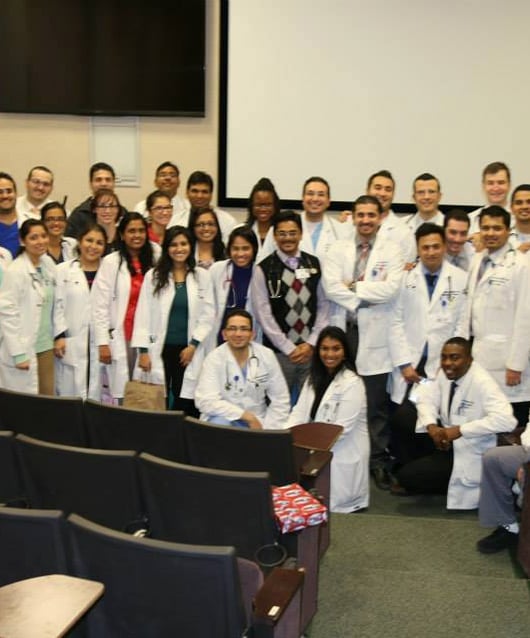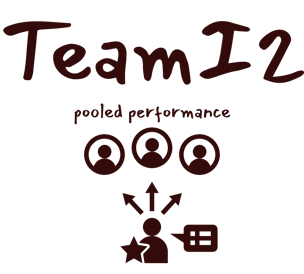In general
Everyone has a different and a unique journey, so do not compare or idolize someone else’s work to yours. Just plan well, aim for consistency and put in the hard work.
Understanding USMLE journey for an IMG is an overwhelming process. Not only to you, but to your family as well.
Be prepared to fail and if you do, know what to do next and how to improve.
Basics
To be eligible, you basically need to be certified by the ECFMG.
ECFMG certification is where everyone meets, before advancing to residencies of their interest. US graduates, International graduates, and graduates from Mars (lucky you! the last I checked there were none from Mars).
ECFMG certification = passing USMLE steps, verifying your credentials (medical school documents)
Step 3: needed for state medical licensing and visa. (Also to beat your IMG competitors).
USMLE
USMLE steps include: 1, 2 CK (clinical skills), 2 CS (clinical skills) & 3.
Step scores are extremely important for matching, especially for IMGs.
Simple logic is its an easy objective parameter that programs can use to filter out a few candidates (actually a lot of candidates) out of thousands of applications.
Also step scores are something that is in your control. So, dont take an exam if you are not ready.
Dont
Real life tip: I flunked my CS and screwed up my CK scores trying to apply on time for an application season.
Its actually better to wait a year if you are not prepared well. I am sure you know, the score you get (good or bad) stays with you forever.
The reason why I took 5 attempts to match, whereas a friend of mine who failed his CK on first attempt, matched 2 years earlier than me as he had the option of retaking the CK! Higher the scores the better for you.
Scores
With step-1 being pass/fail, focus has now shifted to step-2.
I highly recommend making study groups. Get together once in a week, discuss topics, solve doubts, and share knowledge.
First Aid is the Bible for Step exams. BASICS are most important - for step exams, as an intern, as a resident at any point in career!
Read everyday, don’t waste your energy in remembering details during your medical school, rather focus on pathophysiology and mechanisms.
Do the UWorld questions thoroughly, the greater number of times you do it, the better.
Time management is important, try and increase your speed of doing questions. Use additional resources for the weaker areas.
You can work on minute details during the dedicated exam period. Be mentally prepared to sit in 8-hour long exam with appropriate breaks.
USCE
USCE stands for US clinical experience, which broadly comprises of observerships, externships and pretty much anything where you can see patients in the US.
Be very clear about your goals: gain experience, hone your conversational US English skills, and impress the faculty so that you can get their support towards your residency application (can be LOR or a phone call). LOR = letter of recommendation
Ideally, doing rotations at hospitals that has a residency program and takes IMGs every year will be helpful.
If you manage to get rotations in such a program, do at least 2 months, so that staff/ PD can know you well and write strong letters for you.
Electives
Electives > Observerships especially if you do them before you graduate (ie take a break from completing your internship year).
Do at least 3 – 4 electives, it is ideal if you can take elective rotations in Internal Medicine related subspecialties like gastroenterology, neurology, hematology, and the various age-specific modalities of Internal Medicine especially if you know what subspeciality you want to do in future.
Have a well-structured time line and a plan, as the process is long especially when to apply for electives and observerships – it helps to get LORs demonstrating your skills and potential in the field that they are applying to.
Involve
Go through program websites to see where you can apply for these rotations and the requirements that have to be fulfilled before applying.
Be the best version of who you are all throughout the rotation, this also implies to day-to-day life. Always be the first to arrive and last to leave.
Present cases/ power-points so that you have more interaction with the faculty. Be inquisitive.
Act professionally and empathetically with both patients and fellow physicians. Real life tip: Although we all have it, I had no idea how to demonstrate my empathy, sympathy in English language.
Obviously because I am not a native English speaker. However, this is very important.
Your medical knowledge is already conveyed by your step scores. The ability to express sympathy, empathy and the use of right English words to do so is a skill that I had to focus on. At the end of the day, it’s very easy once you know it.
Research
You can stand out from a lot of candidates if you have research publications on your CV.
When to start research? At Least from the 2nd year of med school. You have to work on your research projects along with medical school, step exam preparations.
You will never get separate time to work on research, NEVER! The research you do is valuable only if gets published. So, sooner you start, higher the probability of getting it published before interview season. This is another thing, that is in your control.
Application
Preparing your application package is a time consuming process, as it is to your gray-matter.
Typically the package comprises of your ERAS application, letters of recommendation, personal statement, CV.
We will talk little bit about PS and CV as the rest are pretty self assembled via ERAS submission site.
Personal statement
Writing a good personal statement helps a lot. Really a lot. More than what an IMG can imagine! It can be difficult as you have only so much space to write.
So start preparing your personal statement right after you are done with step 2 (personal statement is a life story in one page - you can express your motivation, perspectives and future goals in it) so it will take a lot of work to make a fine final personal statement.
You can use paid agency/ person to help you well articulate the personal statement, otherwise you are the only person who knows you well. Your residency personal statement should capture not only your scientific curiosity but your humanistic side as well.
Go through the script. What would you want to read about yourself? It should not be very lengthy. So, keep it short and simple.
Be original, there are examples available online, don’t copy them. PD’s go over several statements and they know a plagiarized PS when they see one. Go over the links on AMA website about do’s and don’t’s.
Have 3 or more friends and family look over your personal statement to give you feedback. Reach out to unknown people from US or UK (after doing a basic research of course) on twitter or linkedin to have a look at your PS and give you constructive feedback.
CV
Use your residency CV to highlight your IM-relevant experiences. Discuss your rotations, coursework, and electives that highlight your interest towards the specialty.
A good CV helps to strengthen the personal statement by showing the consistency and coherence of your story, and makes the residency directors feel confident that you will be the right fit for their program.
The CV format is taken care of by the ERAS submission site.
LOR
It’s always good to have specialty-specific letters of recommendation. It can be impactful to have someone from the speciality backing you up.
Try to get them written as soon as you complete your rotations so that they remember you with details. Start assembling your LORs early because the letters take time to get uploaded to ERAS.
If you are applying for IM, an extremely strong letter from a specialist will be worth more than a mediocre letter from a world-renowned IM scholar.
Interviews
Know some of the common questions even though each residency interview will be a bit different. It’s good practice to know the general questions you’re likely to encounter everywhere.
Practice your interview skills as the interview season draws nearer, in a more realistic way. Actually voicing loud your responses is the best way to do this. You can also do this by recording a video of yourself and watching it. Let others see it and give you suggestions on your flow of conversation.
Don’t come in with pre-packaged answers. Practice to make your answers sound authentic. Most importantly, admit it if you don’t know an answer. Trying to answer when you don’t know is equal to ‘digging your own grave’. Trust me, the interview panel will catch this in no less than 5 seconds, and then there is no going back.
Research every program. PD’s want someone who has a firm understanding of the institution. It will also help you to rank programs according to your preference. Make the most of the entire interview experience. Have good interactions with faculty and current residents.
PRACTICE for your interview. Practice a lot. Practice with friends/family/facebook groups. If you are practicing with friends, give each other feedbacks (there are no right or wrong answers to IV questions, you should be able to answer confidently and your answer should be convincing and it should be consistent with your PS and CV)
Visa
Everyone knows that green card holders and US citizens match much easier than visa holders.
This is the part you can not control, so if you have neither, don’t stress about it, because in most part you will be competing with visa requiring candidates.
Do not waste time trying to apply to programs that do not sponsor visas. Choice of H1b or J1 will depend on your long term goals.
This can be fellowship goals or just making a career and settling in the US. H1b is always better.
Network
Networking is important, but it is difficult at this transition level (from home country to USA, also when you do not have any mentor in states).
Wherever you rotate, discuss your goals with residents and attendings. Everyone understands your position.
The key is to keep approaching people (in person, twitter, linkedin etc) without getting disappointed, because most of them won't be able to help you.
Finding the right mentor is crucial. Apart from suggesting means to reach your goal, a good mentor will alert you to your mistakes.
It’s more important to know what ‘not-to-do’ than just knowing ‘what-to-do’. Find someone who is easily available to you via email and phone and is personally invested in your growth.
You have to ask. Ask again and may be ask many more times. Dont be shy, every IMG doc in practice in the US has taken the same boat to get to the western shores like you. Network!
Thanks
Dr. Vishali Moond; 2nd year internal medicine resident at Saint Peter's University Hospital/ Robert Wood Johnson Medical School, New Brunswick, New Jersey, USA.
Dr. Parth Patel; 2nd year internal medicine resident at St. Joseph Hospital, Chicago, Illinois, USA.
I thank them both for their valuable inputs towards this section.


